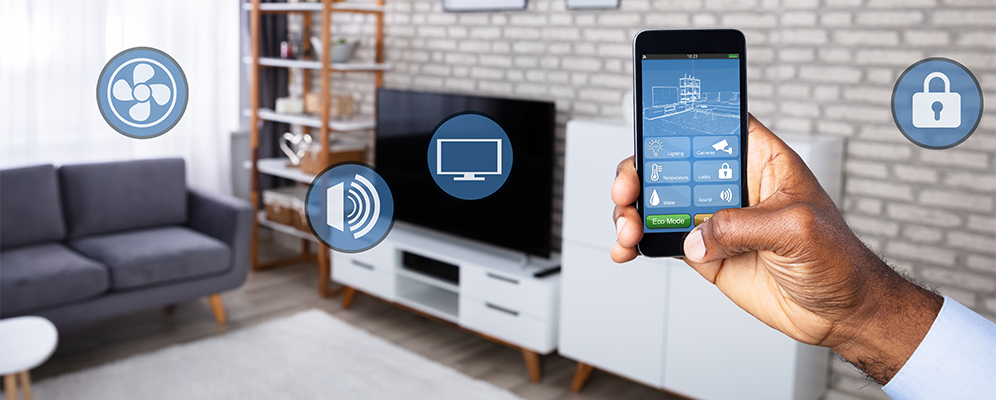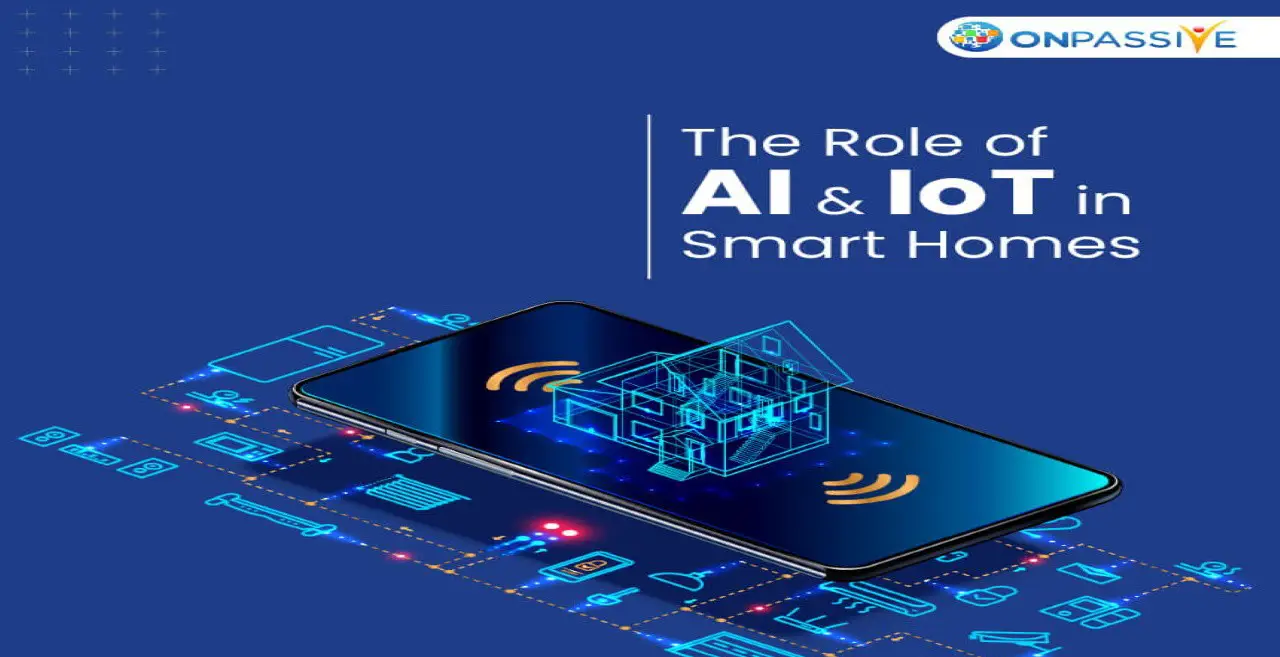AI technologies in smart homes offer convenience, energy efficiency, improved security, and personalized experiences. These benefits enhance daily living and create a more connected and streamlined home environment.
With the integration of AI, smart homes can automate tasks, optimize energy usage, enhance safety, and cater to individual preferences, making them an increasingly popular choice for modern living. The adoption of AI technologies in smart homes has revolutionized the way people interact with their living spaces.
From automated lighting and temperature control to advanced security features and personalized entertainment options, AI has significantly enhanced the functionality and convenience of modern homes. This technology not only simplifies daily tasks but also contributes to energy efficiency and environmental sustainability. As the capabilities of AI continue to evolve, the benefits it brings to smart homes are expected to expand even further, shaping the future of residential living.
:max_bytes(150000):strip_icc()/smart-home.asp-final-5de0da3d6d8a474f9028d26c957255fe.png)
Credit: www.investopedia.com
The Dawn Of Ai-enhanced Living
Transforming Everyday Life
AI technologies have revolutionized smart homes by transforming the way we interact with our living spaces. Through sophisticated algorithms and machine learning, AI systems can anticipate our needs and preferences, enhancing comfort and convenience.
Smart appliances, such as refrigerators, thermostats, and lighting systems, are now equipped with AI capabilities, allowing for personalized settings and intuitive responses to our daily routines.
Integration Into Home Ecosystems
AI technologies seamlessly integrate into home ecosystems, creating a cohesive and efficient environment. With the ability to connect and communicate with various devices, AI-enhanced smart homes streamline tasks and optimize energy usage.
By leveraging data from sensors and devices, AI systems can make real-time adjustments to enhance security, comfort, and energy efficiency, providing homeowners with peace of mind and cost savings.
Simplifying Daily Chores
Imagine a home where daily tasks are effortlessly managed, thanks to AI technology. Smart homes equipped with AI offer numerous benefits, particularly in simplifying daily chores.
Smart Appliances At Work
- AI-powered refrigerators that create shopping lists
- Smart ovens that cook based on recipes
- Automated coffee makers that brew at set times
Automated Cleaning And Maintenance
- Robot vacuum cleaners that navigate and clean floors
- Self-regulating thermostats for optimal energy usage
- Smart irrigation systems that adjust watering schedules
Enhancing Home Security
Boost your home security with AI technologies in smart homes for enhanced protection and peace of mind. Enjoy benefits such as real-time monitoring, remote access, and intelligent alerts for a safer living environment. Experience the convenience and reliability of cutting-edge technology in safeguarding your home.
Ai-powered Surveillance Systems
Smart homes equipped with AI-powered surveillance systems can provide homeowners with an added layer of security. These systems are designed to detect and track any unusual activities in and around the home. They use advanced sensors and cameras to monitor the house and its surroundings, 24/7. With AI-powered surveillance systems, homeowners can access real-time video footage of their homes from anywhere, at any time. This means they can monitor their homes remotely and take necessary action if they notice any suspicious activity. Additionally, these systems can also be programmed to send alerts to the homeowner’s phone or email if any unusual activity is detected.Real-time Threat Detection And Alerts
AI technologies can also enhance home security by providing real-time threat detection and alerts. Smart home systems can be programmed to identify potential threats such as fire, carbon monoxide leaks, or water leaks, and send alerts to the homeowner’s phone or email. This means that homeowners can take immediate action to prevent any damage or harm to their homes and loved ones. With the help of AI-powered sensors and detectors, homeowners can also receive alerts if there is any unusual activity in the home, such as a door or window being opened when they are away. In conclusion, AI technologies have revolutionized the way we secure our homes. With AI-powered surveillance systems and real-time threat detection and alerts, homeowners can have peace of mind knowing that their homes are protected, even when they are away.Energy Efficiency And Management
Energy efficiency and management are essential components of smart home technology, and AI plays a crucial role in optimizing power consumption and enhancing the overall energy efficiency of modern households.
Optimizing Power Consumption
AI technologies enable smart home systems to analyze and optimize power consumption by monitoring the usage patterns of various devices and appliances. By intelligently managing the power supply to different devices, AI helps to reduce energy wastage and lower utility costs.
Intelligent Hvac And Lighting Systems
AI-powered smart home solutions incorporate intelligent HVAC and lighting systems that adapt to the preferences and behavior of occupants. These systems adjust temperature and lighting based on occupancy, time of day, and ambient conditions, contributing to substantial energy savings.
Personalized Comfort And Convenience
Learning Resident Preferences
AI technologies in smart homes are revolutionizing the way we experience comfort and convenience. By learning resident preferences, these systems can adapt to individual habits and behaviors, creating a tailored living environment that enhances the overall lifestyle.
Customizing Ambient Settings
One of the key benefits of AI technologies in smart homes is the ability to customize ambient settings. This includes adjusting lighting, temperature, and other environmental factors to suit the specific preferences of the occupants. Whether it’s creating the perfect ambiance for relaxation or optimizing energy efficiency, these systems offer unparalleled control and personalization.

Credit: www.futurebridge.com
Accessibility And Assistance
AI technologies in smart homes offer a range of benefits for accessibility and assistance. These include voice-activated controls, automated lighting and temperature adjustments, and remote monitoring for security and peace of mind. Such innovations enhance convenience and independence for individuals with disabilities and the elderly, making daily living more manageable.
Smart homes are equipped with artificial intelligence (AI) technologies that provide numerous benefits to homeowners. One of the most significant advantages of these technologies is accessibility and assistance. AI-powered smart homes are designed to cater to the needs of people with disabilities, elderly people, and those who need assistance with their daily activities.Support For Elderly And Disabled
Smart homes are a boon for elderly and disabled individuals who may require assistance with their daily routines. AI technologies such as smart sensors, voice-controlled interfaces, and smart devices are available to help them. These devices can help them control the lighting, temperature, and other aspects of their home with ease. They can also use these devices to communicate with their caregivers or family members in case of an emergency.Voice-controlled Interfaces
Voice-controlled interfaces are a significant advancement in AI technology. These interfaces allow users to control smart home devices using voice commands. This feature is particularly beneficial for elderly or disabled people who may have difficulty using manual controls. Voice-controlled interfaces are also a great convenience for anyone who wants to operate their smart home devices hands-free. In conclusion, AI technologies in smart homes offer several benefits, particularly in terms of accessibility and assistance. These technologies provide support for elderly and disabled individuals and offer voice-controlled interfaces that make controlling smart home devices easier and more convenient.Data-driven Insights For Homeowners
Homeowners benefit from AI technologies in smart homes through data-driven insights that enhance security, energy efficiency, and convenience. AI-powered devices provide real-time information, optimize resource usage, and offer personalized experiences, creating a more comfortable and sustainable living environment for residents.
analyzing Usage Patterns
AI technologies in smart homes provide valuable insights by analyzing usage patterns.
Homeowners can track energy consumption and optimize usage based on data.
predictive Maintenance Alerts
AI systems offer early warnings through predictive maintenance alerts.
Homeowners receive notifications for potential issues before they escalate.
Data-Driven Insights for Homeowners:
AI technologies offer data-driven insights for homeowners in smart homes.
By analyzing usage patterns and providing predictive maintenance alerts, these systems empower homeowners to make informed decisions and maintain their homes efficiently.

Credit: canterbury.ai
Interconnectivity And Smart Ecosystems
Seamless Device Interactions
AI technologies in smart homes enable seamless interactions between various devices, creating a unified and efficient living environment. With AI, devices can communicate and collaborate to automate tasks, enhance security, and improve energy efficiency. This interconnectivity allows for a truly integrated home experience, where different devices work together harmoniously to meet the needs and preferences of the occupants.
The Role Of Iot In Ai Smart Homes
The Internet of Things (IoT) plays a pivotal role in enabling AI smart homes. IoT devices, such as sensors, actuators, and smart appliances, form the foundation of the interconnected ecosystem. These devices collect and transmit data, which is then analyzed and acted upon by AI algorithms. Through this synergy, AI can learn from the data gathered by IoT devices, making intelligent decisions to optimize comfort, convenience, and security within the home environment.
The Future Of Ai In Home Automation
Imagine a world where your home intuitively anticipates your needs before you even realize them. This is the future of AI in home automation. From enhancing security to optimizing energy usage, AI technologies are revolutionizing the way we interact with our living spaces.
Emerging Trends And Innovations
AI-powered voice assistants like Alexa and Google Assistant are becoming commonplace in smart homes, enabling seamless control over various devices through simple voice commands.
Smart thermostats equipped with AI algorithms can learn your temperature preferences and adjust settings accordingly, ensuring optimal comfort and energy efficiency.
AI cameras with facial recognition technology provide enhanced security features, allowing homeowners to monitor their property remotely and receive alerts about suspicious activities in real-time.
Ethical Considerations And Privacy
Despite the numerous benefits of AI in smart homes, concerns about data privacy and potential misuse of personal information have emerged as significant ethical considerations.
It is crucial for developers and manufacturers to prioritize data encryption and user consent mechanisms to safeguard sensitive information collected by AI devices.
Implementing transparent privacy policies and giving users control over their data can help mitigate privacy risks and build trust in AI-powered home automation systems.
Frequently Asked Questions
What Are The Advantages Of Ai In Smart Homes?
AI in smart homes offers convenience, security, energy efficiency, and personalized experiences for residents. It streamlines tasks, enhances safety, reduces energy wastage, and adapts to individual preferences seamlessly.
How Do Smart Home Devices Use Ai?
Smart home devices use AI to learn user habits, adjust settings, and provide personalized experiences for convenience and efficiency.
What Are The Benefits Of A Smart Home?
Smart homes offer convenience, security, energy savings, and comfort. With automated controls for lighting, temperature, and appliances, smart homes enhance daily living. Additionally, smart devices provide remote monitoring and control, increasing home safety and peace of mind.
How Can Ai Be Used In Houses?
AI can be used in houses for tasks like smart home automation, energy management, security systems, and entertainment.
Conclusion
To sum up, the benefits of AI in smart homes are immense. From enhanced security to energy efficiency, AI technologies simplify daily tasks. With continuous advancements, AI is revolutionizing the way we live, making homes more convenient and comfortable. Embracing AI in smart homes is the way forward.


